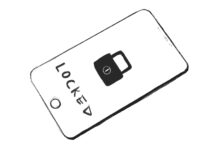Limited health literacy can lead to difficulties in patients’ self-care activities such as taking prescribed medications. Since a considerable amount of health information changes hands in the pharmacy setting, research by pharmacists into evaluating which tools are effective in practice can make a valuable contribution to goals set by the 2010 US National Action Plan to Improve Health Literacy and lead to improvements in communications and health care, say experts in this special themed issue on “Pharmacy, Medication Use, and the National Action Plan to Improve Health Literacy,” published in the journal Research in Social and Administrative Pharmacy.
Health literacy is defined by the Institute of Medicine as “the degree to which individuals have the capacity to obtain, process, and understand basic health information and services needed to make appropriate health decisions.”
As reported by the 2003 National Assessment of Adult Literacy, approximately 36% of adult Americans exhibit health literacy skills that are at the basic level or below. This affects people’s ability to search for and use health information, adopt healthy behaviors, and act on important public health alerts. Limited health literacy affects people of all ages, races, incomes, and education levels; but the impact of limited health literacy disproportionately affects lower socioeconomic and minority groups, which includes racial and ethnic minorities as well as seniors. Limited health literacy is also associated with poorer health outcomes and higher costs.
With these concerns in mind, and guided by Michael J. Miller, RPh, DrPH, FAPhA, of the College of Pharmacy, The University of Oklahoma, Research in Social and Administrative Pharmacy solicited and compiled a collection of papers from top authorities from around the world, affiliated with prominent institutions such as the US Centers for Disease Control and Prevention and the US Department of Health and Human Services. Their collective contributions demonstrate pharmacy-relevant efforts supporting the US National Action Plan to Improve Health Literacy.
“The ideas generated from the research described in these papers should serve as a stimulus for future research and dialogue about a topic that is fundamental to ensuring optimal medication use, safety, and equity in health information-sharing,” says Miller.
The US Department of Health and Human Services’ 2010 National Action Plan to Improve Health Literacy defined seven goals to improve health literacy and suggested strategies for achieving them. The topics and studies in this special issue align most closely with goals on accessible, accurate, and actionable health information (Goal 1) and health-literate health care services (Goal 2). Improving quality and use of written communication materials, evaluating and creating environments that encourage active communication, and describing and testing novel ways to raise student awareness about health literacy issues highlight just a few of the important topics raised in this special themed issue.
Six studies examine the comprehensibility of patient education materials. Their conclusions support the value and necessity of clear communication and of designing and testing materials with the intended users.
Pharmacy schools are beginning to adopt health literacy as a framework for training the next generation of pharmacists to be effective communicators. Health literacy has begun appearing on syllabi, and has become a topic of experiential education activities. Six articles highlight the important role pharmacy schools are playing to further health literate pharmacy practice, while other contributions provide additional evidence of the important role pharmacy students can play in promoting health literacy in community pharmacies.
This article was interesting because it explains the severity and magnitude of the issue of health literacy. Part of the solution comes from health professionals understanding of the issue at hand and having the resources and training to convey health information in a more digestible manner. Addressing the problem of health literacy from the health professionals perspective is interesting and something that can be of great value to us as we move forward with this topic.





I agree with you Izzy. Much of the information that I researched value you point as a base line issue with the problem of pharmaceutical literacy is the way in which information is delivered and received as a heath care provider compared to a patient. As a patient we place our trust and questions in the hands of our care provider, so in return we hope that the necessary information we need should be delivered back to us. Therefore, applying resources and training to convey such material from the role of a health care provider is key to this area of topic.